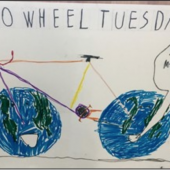Abstract: Actualization of the 17 sustainable development goals (SDGs) conceived by the United Nations in 2015 is a global challenge that may not be feasible in sub-Saharan Africa by the year 2030, except higher education play a committed role. There is need for higher education to embrace partnership and train people on the concepts of sustainability and sustainable development in the region. This paper presents a model center with curricular framework and partnership structure for the training. The Model Center for Sustainability Studies (MCSS) will enable partnerships with institutions in Africa and in advanced nations, thereby creating a global network for sustainability studies not found in sub-Saharan Africa. MCSS will train and certify public servants, government agencies, policymakers, entrepreneurs and personnel from organizations and students on aspects of the SDGs and sustainability science. It is important to add sustainability into environmental education and make environmental education a compulsory course in higher institutions and a secondary school certificate exam subject in sub-Saharan Africa. MCSS has 11 training modules that can be replicated anywhere in the world. Higher institutions in sub-Saharan Africa should follow this training perspective, to achieved SDGs, predicted 2040 against 2030.
Continue Reading
Sustainability education has changed identities a number of times over the last decades. How might whole-school sustainability (WSS) prepare students to address current global issues? A focus on teaching the Sustainable Development Goals (SDGs) creates opportunities for students to develop systems thinking and to learn to take civic action. We visited four schools in the United States to observe and document replicable models of K-12 WSS. In our research, we used a mixed methods approach to code data from interviews, classroom observations, and school campus tours. Results from a case study analysis of four K-12 schools map out pathways toward implementing and refining WSS education programs to include the SDGs, systems thinking, and civic action.
Continue Reading